Lump on toddler's cheek leads doctors to tumour a third the length of her body
In every parent’s worst nightmare, a two-year-old Aussie girl’s swollen cheek and fever-like symptoms have led doctors to find a giant tumour, almost a third of the length of her body.
Tasmanian parents Rob and Jacqui Oakley first noticed something was wrong, when their active toddler Eleanor stopped walking earlier this year.
They later discovered a colourless lump on her cheek, which baffled doctors at the Royal Hobart Hospital.
“It was only a very small lump, it looked as though she had a bit of a swollen cheek, really and she was diagnosed with a virus,” Mr Oakley told Yahoo7.
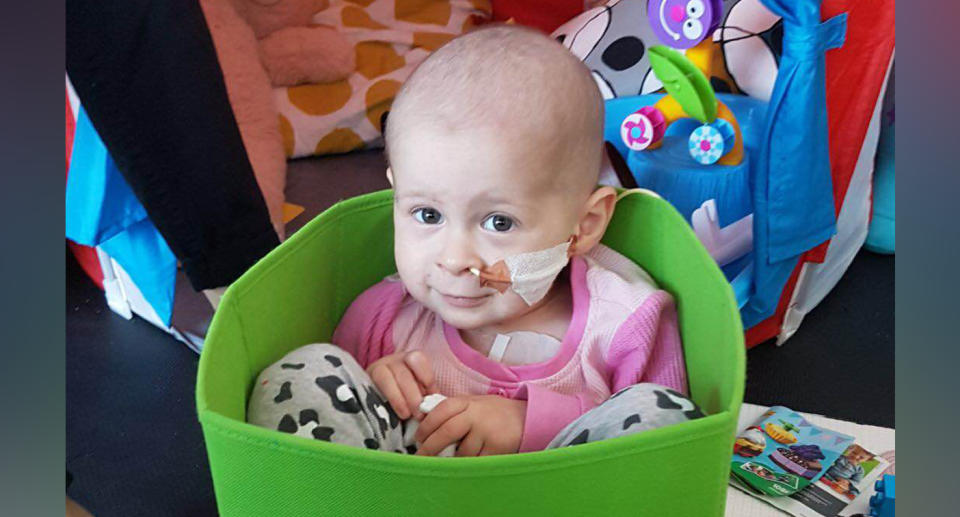
“Early in January, we took her into Royal Hobart Hospital thinking things weren’t quite right and we were in and out of the emergency department about four times in a week.”
At first doctors were mystified, but later a test found the tot had an extremely low red blood cell count and further tests revealed a terrifying diagnosis.
Doctors determined that Eleanor had the rare cancer neuroblastoma and she would need to be rushed by air ambulance to Melbourne’s Royal Children’s Hospital for the first available bed.
Terrifying disease takes hold
Mr Oakley said the cancer which Eleanor suffers from is very aggressive.
“It’s a cancer that starts in the adrenal gland and then travels in the nerve cells. Eleanor’s primary tumour was surrounding her right kidney, from her right adrenal gland.
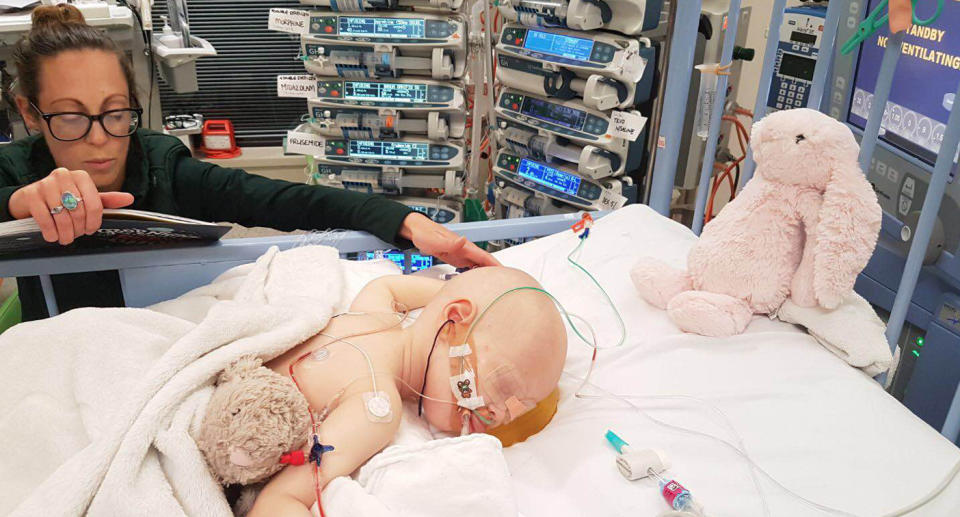
“Neuroblastoma typically travels in the bone marrow, so once it gets into the bone marrow, then it rapidly spreads to other parts of the body.”
When she was diagnosed, cancer had spread to multiple parts of Eleanor’s body, with one tumour being almost a third of the length of her body.
“Her original tumour was 21 centimetres by 12.5 centimetres,” Mr Oakley said.
“When she got diagnosed, she was 77 centimetres tall, so a tumour that size is probably almost about a third of her body size.
“Eleanor had her secondary tumour on her skull, so in the nose area, she had cancer in her bone marrow, a couple of spots in her spine and lymph nodes surrounding the right kidney area.”
Forced to move to another state
“We found out about the diagnosis on January 12, which was a Friday and we had to pack up everything and move as quickly as possible,” Mr Oakley said.
The family uprooted their life in just two days and moved to Melbourne.
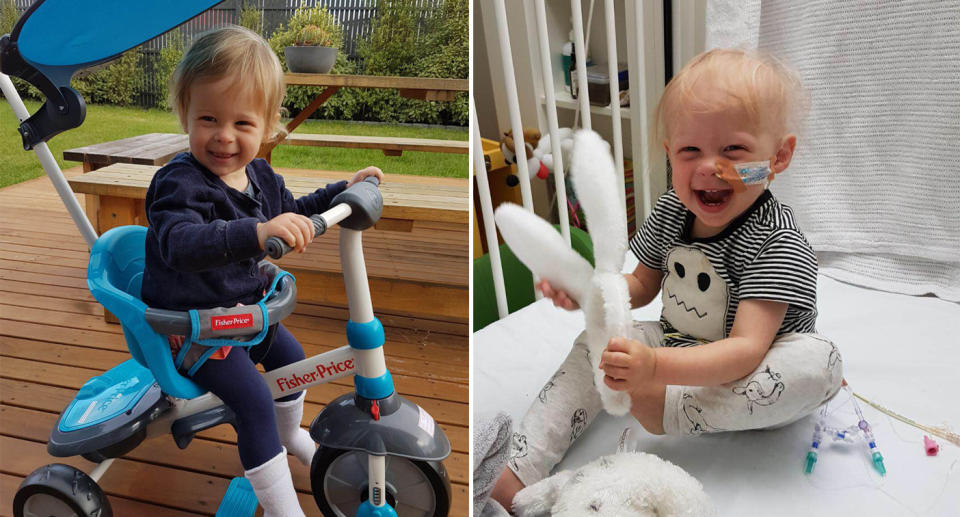
As full-time carers, the Oakleys are unable to work.
Ms Oakley, a high school health and physical education teacher, has been forced to take unpaid leave.
But Mr Oakley’s firefighter colleagues have stepped up to help him during this difficult time.
“I’m very lucky in my job, it’s shift based, so a lot of my mates from the fire service have volunteered to work for me,” Mr Oakley said.
“It’s phenomenal.”
Brave toddler forced to undergo extensive treatment
While doctors initially thought treatment would take nine months, the plan has been extended to an 18 month course.
Since January, Eleanor has undergone five rounds of induction chemotherapy and her right kidney and three surrounding lymphs have been surgically removed.
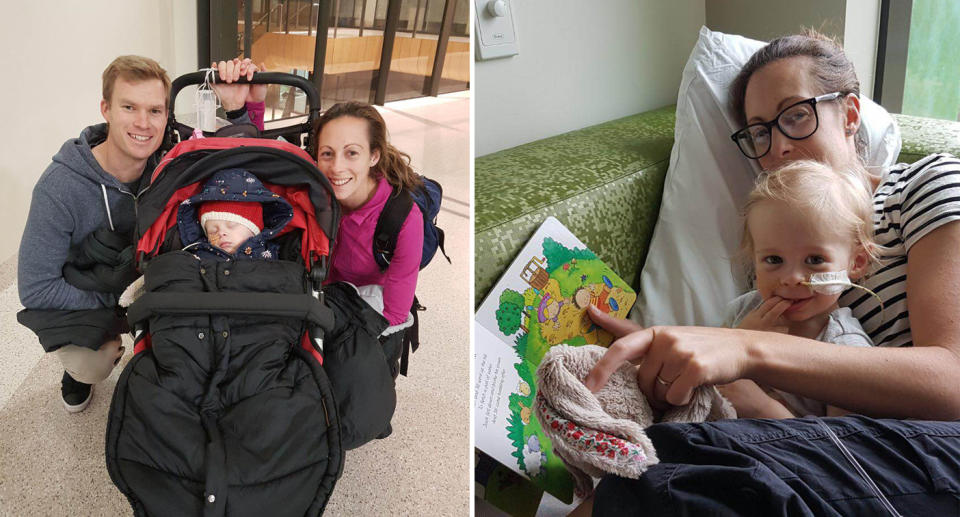
She then received high dose chemotherapy or a stem cell transplant, which is a special treatment that targets the bone marrow.
“Eleanor developed really serious lung complications, she almost died in intensive care,” Mr Oakley said.
“She was on a breathing ventilator for nearly eight days because she just couldn’t breathe unassisted.
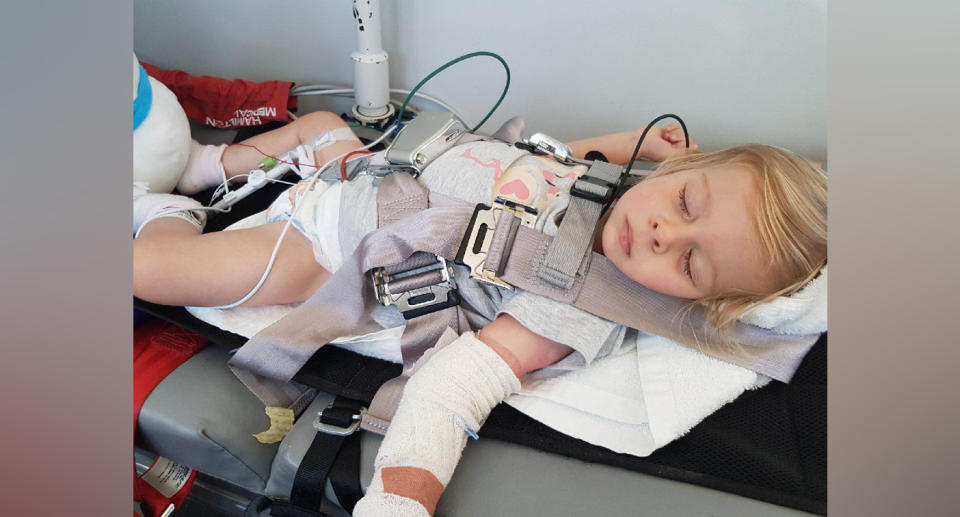
“At that stage, our fear was we didn’t know where the bottom was and if she was going to deteriorate further.”
After recovering, her lungs relapsed again. The toddler spent her second birthday in intensive care, receiving high flow oxygen treatments in July.
She then received home-based oxygen treatment for about a month and further scans.
The brave toddler completed 12 days of radiotherapy, going under general anaesthetic every day, on Thursday.
‘She only knows hospital life’
“She doesn’t really understand what’s happening, she’s only just starting to communicate to us in more than a couple of words,” Mr Oakley said.
“She’s now a bit over two, but we’ve been in the system for nine months, so as far as her memory would go, she wouldn’t really know any other way other than hospital life.
“Which is very sad for a young toddler, we don’t have to really explain to her why we’re going to hospital, she sort of knows that’s what every day to day’s going to bring.
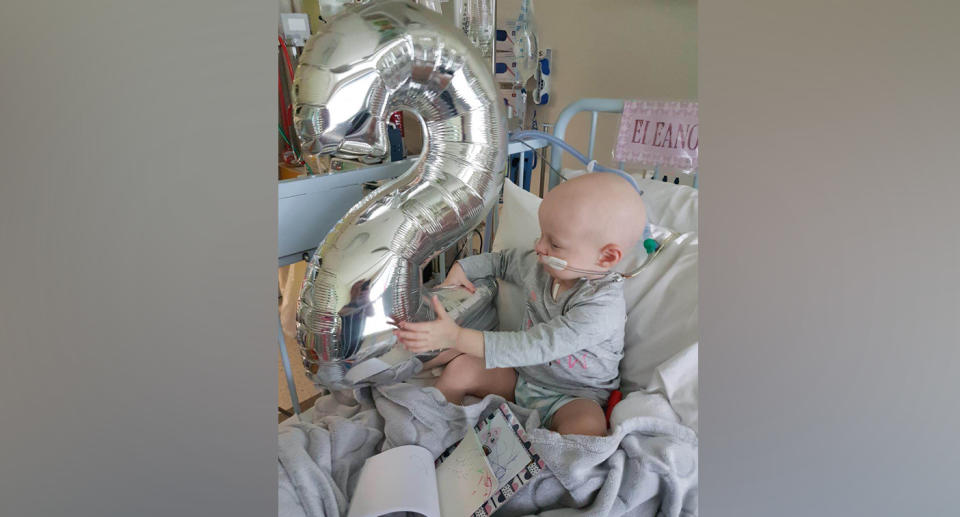
Mr Oakley hopes that his daughter will be able to start immunotherapy in November, after further tests. If all goes to plan, the treatment could be completed by April 2019.
Family finances at breaking point
While the family lives in Melbourne, the Tasmanian government pays for their accommodation, as the medical treatment was not available in their home state.
But they are doing it tough financially, so they have started a GoFundMe campaign to raise money and have so far received $56,430 of their $75,000 goal.
“We haven’t got income coming through and it’s still quite expensive to live in Melbourne with food and fuel,” Mr Oakley said.
“We’re in hospital a lot, so any time out of hospital we want to be able to do things like take her to the zoo.”


